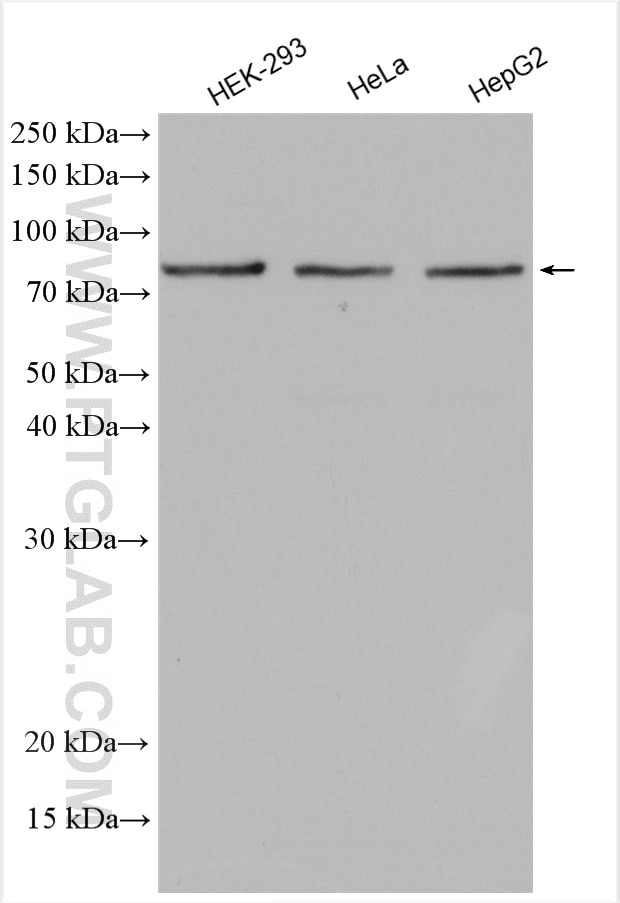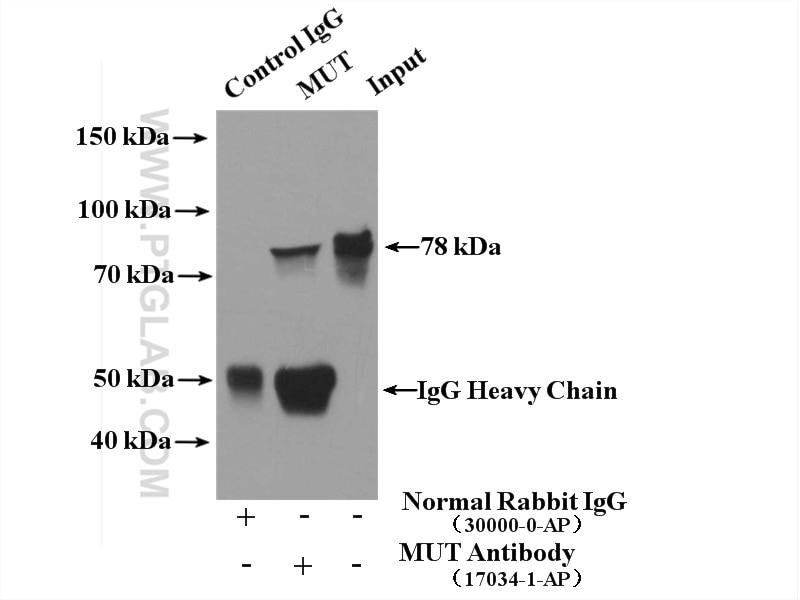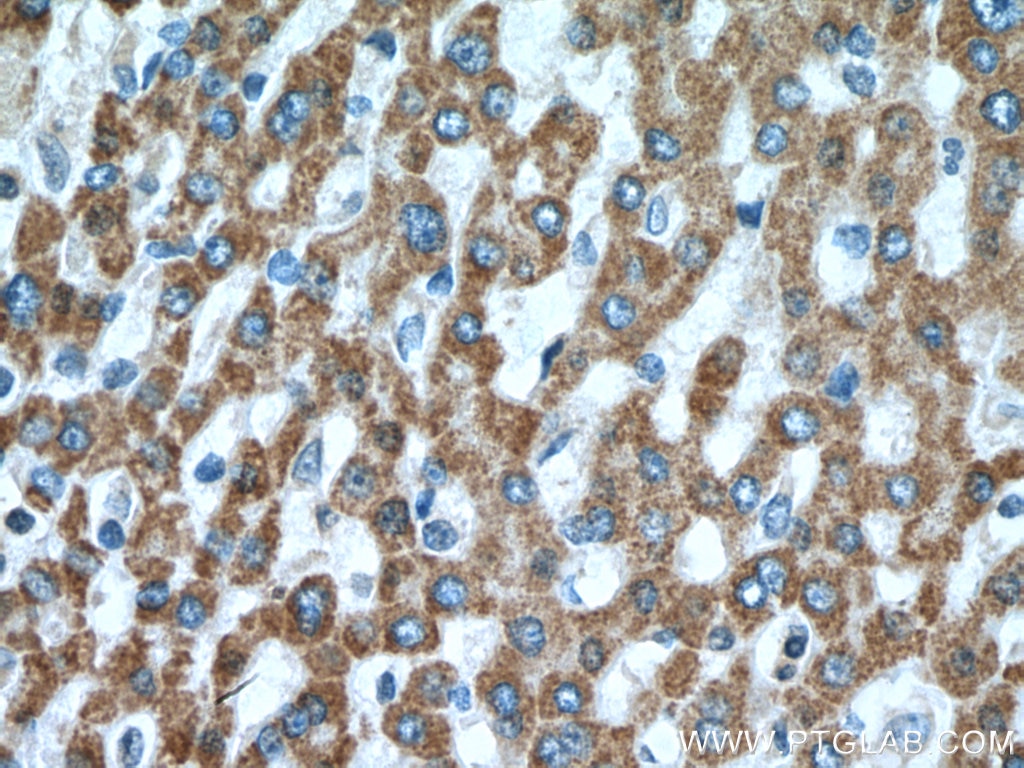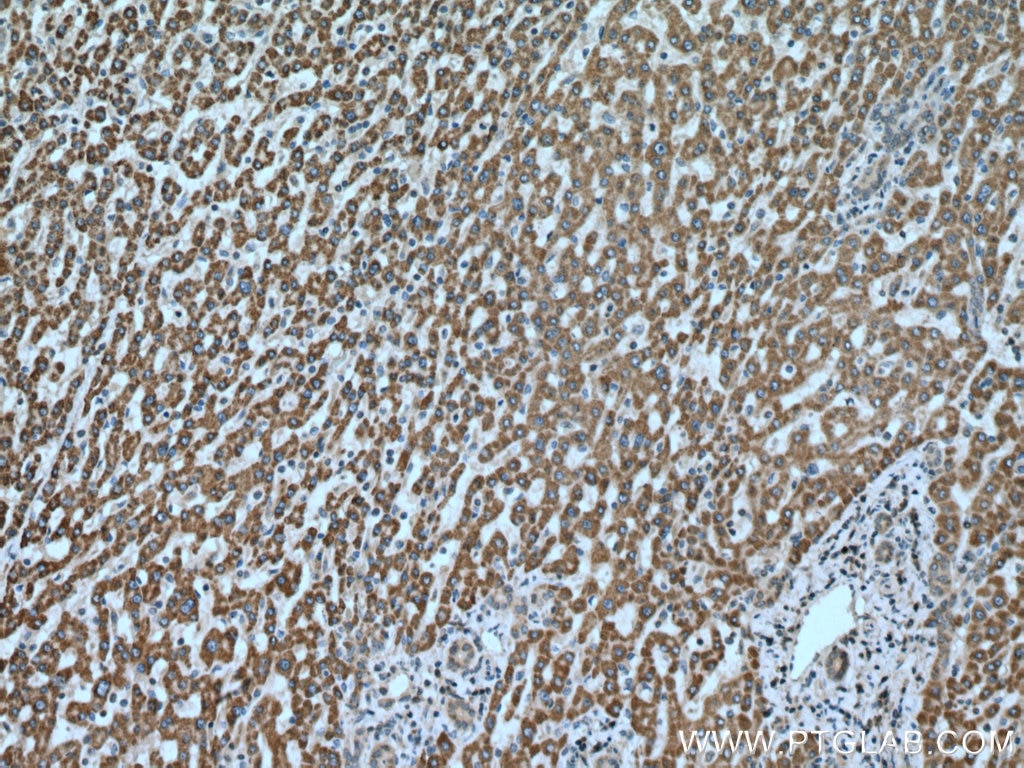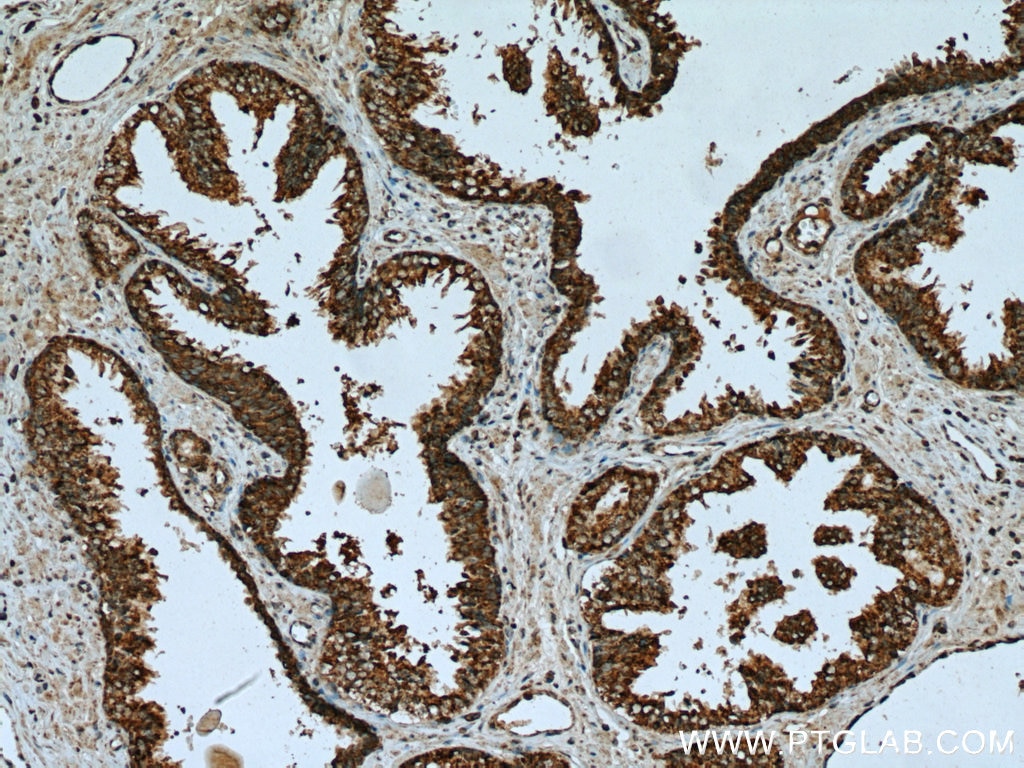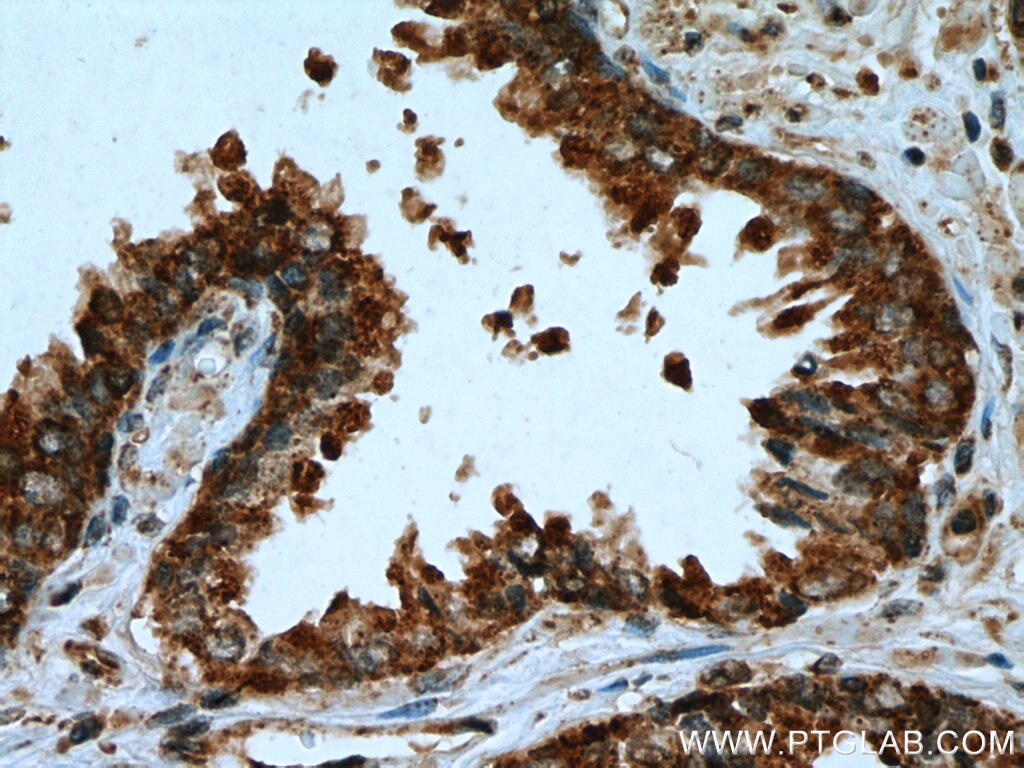Tested Applications
| Positive WB detected in | HEK-293 cells, HeLa cells, HepG2 cells |
| Positive IP detected in | HepG2 cells |
| Positive IHC detected in | human liver cancer tissue, human prostate cancer tissue Note: suggested antigen retrieval with TE buffer pH 9.0; (*) Alternatively, antigen retrieval may be performed with citrate buffer pH 6.0 |
Recommended dilution
| Application | Dilution |
|---|---|
| Western Blot (WB) | WB : 1:2000-1:12000 |
| Immunoprecipitation (IP) | IP : 0.5-4.0 ug for 1.0-3.0 mg of total protein lysate |
| Immunohistochemistry (IHC) | IHC : 1:50-1:500 |
| It is recommended that this reagent should be titrated in each testing system to obtain optimal results. | |
| Sample-dependent, Check data in validation data gallery. | |
Published Applications
| KD/KO | See 1 publications below |
| WB | See 4 publications below |
| IHC | See 3 publications below |
Product Information
17034-1-AP targets Methylmalonyl Coenzyme A mutase/MUT in WB, IHC, IP, ELISA applications and shows reactivity with human, mouse, rat samples.
| Tested Reactivity | human, mouse, rat |
| Cited Reactivity | human, mouse |
| Host / Isotype | Rabbit / IgG |
| Class | Polyclonal |
| Type | Antibody |
| Immunogen | Methylmalonyl Coenzyme A mutase/MUT fusion protein Ag10523 Predict reactive species |
| Full Name | methylmalonyl Coenzyme A mutase |
| Calculated Molecular Weight | 750 aa, 83 kDa |
| Observed Molecular Weight | 78 kDa |
| GenBank Accession Number | BC016282 |
| Gene Symbol | MUT |
| Gene ID (NCBI) | 4594 |
| RRID | AB_2147263 |
| Conjugate | Unconjugated |
| Form | Liquid |
| Purification Method | Antigen affinity purification |
| UNIPROT ID | P22033 |
| Storage Buffer | PBS with 0.02% sodium azide and 50% glycerol, pH 7.3. |
| Storage Conditions | Store at -20°C. Stable for one year after shipment. Aliquoting is unnecessary for -20oC storage. 20ul sizes contain 0.1% BSA. |
Background Information
Methylmalonyl Coenzyme A mutase (MUT) is an enzyme that plays a crucial role in the metabolism of certain amino acids and fatty acids. Mutations in the MUT gene can lead to methylmalonic acidemia, a metabolic disorder characterized by the accumulation of toxic compounds such as methylmalonyl-CoA and propionyl-CoA. This condition can cause severe health issues including developmental delays, metabolic acidosis, and neurological problems. MUT is essential for maintaining normal metabolic processes and its dysfunction can have significant health implications, highlighting its importance in both basic metabolism and clinical medicine.
Protocols
| Product Specific Protocols | |
|---|---|
| WB protocol for Methylmalonyl Coenzyme A mutase/MUT antibody 17034-1-AP | Download protocol |
| IHC protocol for Methylmalonyl Coenzyme A mutase/MUT antibody 17034-1-AP | Download protocol |
| IP protocol for Methylmalonyl Coenzyme A mutase/MUT antibody 17034-1-AP | Download protocol |
| Standard Protocols | |
|---|---|
| Click here to view our Standard Protocols |
Publications
| Species | Application | Title |
|---|---|---|
Hepatology Promoterless, Nuclease-Free Genome Editing Confers a Growth Advantage for Corrected Hepatocytes in Mice With Methylmalonic Acidemia. | ||
Cells Inactivity of Peptidase ClpP Causes Primary Accumulation of Mitochondrial Disaggregase ClpX with Its Interacting Nucleoid Proteins, and of mtDNA. | ||
PLoS One Novel AAV-mediated genome editing therapy improves health and survival in a mouse model of methylmalonic acidemia | ||
EMBO Mol Med A coordinated multiorgan metabolic response contributes to human mitochondrial myopathy | ||
Biochim Biophys Acta Mol Basis Dis ACSS3 regulates the metabolic homeostasis of epithelial cells and alleviates pulmonary fibrosis | ||
Am J Pathol Aging-associated Metabolite Methylmalonic Acid Increases Susceptibility to Pulmonary Fibrosis
|
